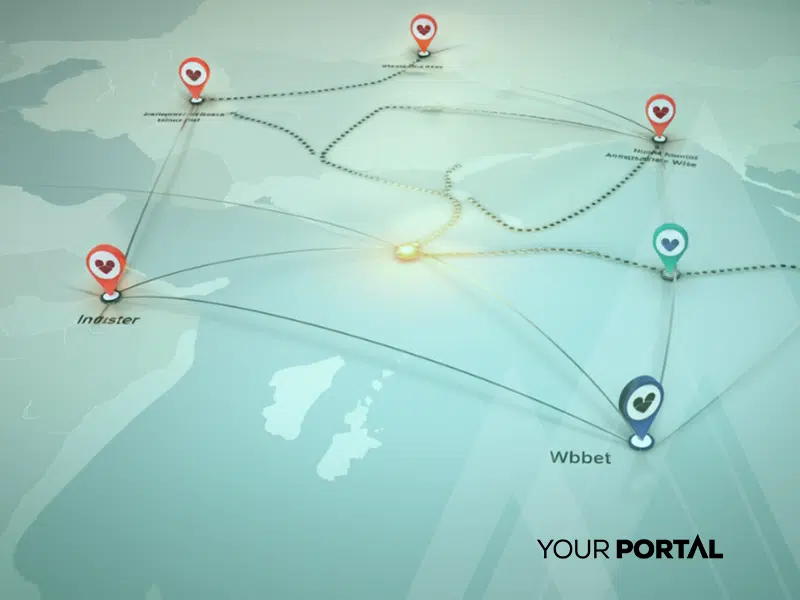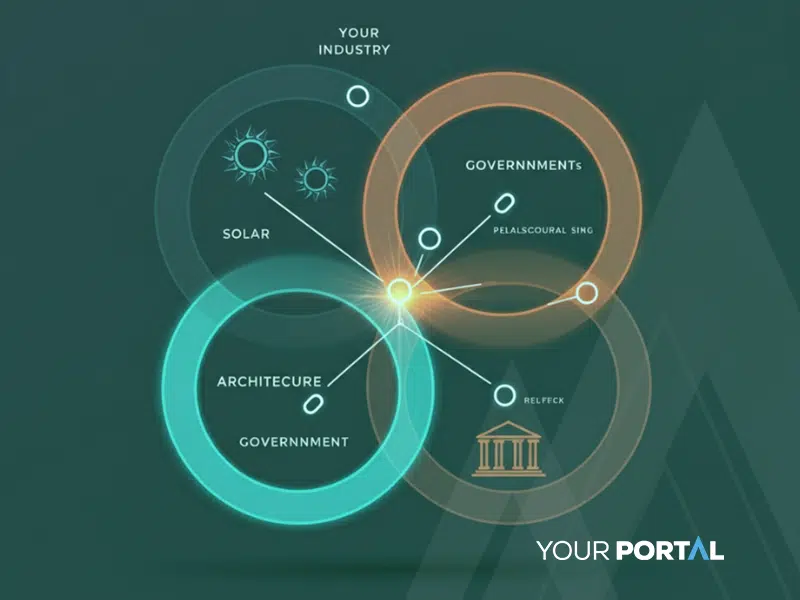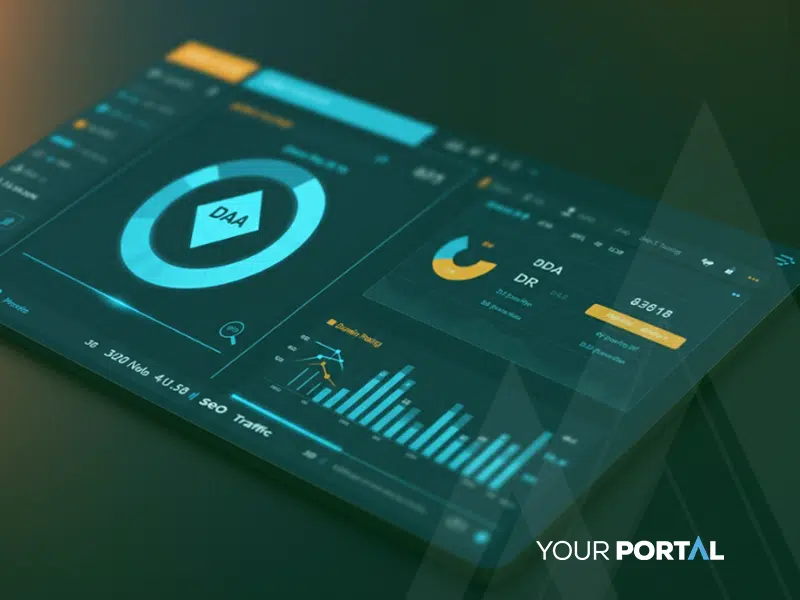Article At Glance
- Not All Links Are Equal: Quality and relevance trump sheer quantity in today’s SEO landscape.
- Relevance Covers Multiple Dimensions: Strategic connections across industries can influence rankings.
- Context Outweighs Authority: Links without proper context or relevance fail to drive results.
- A Clear Strategy is Essential: Building links blindly wastes valuable resources and can even harm rankings.
- Link-Building Complements Other SEO Strategies: Integration with content marketing and technical SEO amplifies results.
Struggling to see results from your link-building campaigns? It’s time to debunk the myths that are holding back your SEO strategy. At YourPortal, we specialize in building smarter, data-driven SEO solutions that help you succeed.
Why Link-Building Still Matters in Modern SEO
Link-building remains one of the most critical factors for search engine rankings. Google evaluates backlinks as a signal of trust and authority; the more relevant and credible links pointing to your site, the greater your chances of achieving higher rankings. However, modern SEO requires a more strategic, holistic approach.
Link-building works best when combined with other SEO pillars, such as content marketing and technical SEO. Creating high-quality, shareable content is a powerful way to earn natural backlinks, while resolving technical issues like site speed and structured data helps ensure search engines can efficiently crawl and index your website. Successful SEO strategies are interconnected, and neglecting one aspect weakens the overall plan.
At YourPortal, we help you integrate link-building with other SEO tactics, creating a comprehensive strategy that delivers measurable results.
Understanding the Problem
SEO myths about link-building are everywhere, leading marketers and business owners down the wrong path. Many believe outdated or ineffective practices like prioritizing link quantity or solely targeting high DA websites still yield results. These myths not only waste resources but can also hurt your website’s reputation and rankings.
Below, we dismantle these harmful myths and offer actionable strategies you can implement today.
Myth #1: All Links Are Created Equal
It’s easy to assume that all backlinks contribute equally to your rankings. This misconception leads many to focus on acquiring as many links as possible, regardless of their quality, relevance, or source. The reality, however, is that links from irrelevant or low-quality websites can harm your site rather than help it.
For example, a tech company earning backlinks from unrelated entertainment websites offers no relevancy to its audience and can trigger penalties if detected by Google’s algorithms.

Actionable Strategies
- Evaluate Link Quality: Use tools like Ahrefs and SEMrush to analyze linking sites. Key metrics include organic traffic, topic relevance, and credibility.
- Prioritize Editorial Links: Focus on earning links naturally through outreach or guest posts on high-quality websites that align with your niche.
- Disavow Spammy Links: If your site already has backlinks from irrelevant or harmful sources, use Google’s Disavow Tool to prevent them from affecting your SEO.
Myth #2: High Authority Links Guarantee Success
While high DA or DR links signal authority, they’re not the sole determinant of success. Google places a higher value on context and relevance than raw authority. A link from a smaller, niche-relevant site often carries more weight than a general link from a high-authority domain.
For instance, if a fitness blog links to a local cafe solely due to its high domain authority, the lack of contextual relevance will diminish the link’s impact on the cafe’s search rankings. In contrast, a link from a food or health-focused website would carry far greater significance.

Actionable Strategies
- Context is Key: Focus on acquiring links where your content makes sense and provides value to the audience.
- Check Engagement: Use tools like SimilarWeb to confirm that the linking site has a real, active audience.
- Balance Your Profile: Diversify your links with a mix of niche-focused sites and trusted, high-authority domains.
YourPortal ensures that all link placements are relevant to your niche and provide long-term value.
Myth #3: All Backlinks Must Be Industry-Specific
While industry-specific links are valuable, limiting your backlinks exclusively to one niche can be a mistake. Overlapping industries contribute to relevance as long as the linking site’s content aligns with your audience’s interests.
For instance, a solar energy company could earn backlinks from architecture blogs, government environmental sites, or home improvement websites. All of these sources indirectly serve their target audience, adding value and relevance.

Actionable Strategies
- Broaden Your Horizons: Identify secondary industries where your audience overlaps and explore partnerships for link-building opportunities.
- Leverage Content Collaborations: Partner with blogs or websites in complementary niches to create co-branded content or shared resource guides.
- Utilize Local Networks: Tap into local business directories, nonprofits, news outlets, and event sponsorships for well-rounded link-building opportunities.
Myth #4: Metrics Like DA or Spam Score Define Link Quality
SEO metrics like Domain Authority or Spam Score are widely used to assess sites, but they’re not directly used by Google to rank websites. These third-party metrics offer insights into a website’s performance but don’t show the full picture.
A website with low domain authority (DA) but highly engaged users can often be more valuable than a high-DA site with limited relevance or user interaction.

Actionable Strategies
- Go Beyond the Numbers: Evaluate a site manually to see if its content relates to your niche and consistently attracts traffic.
- Assess Organic Relevance: Websites with natural links, active social signals, and consistent engagement are safer bets than sites with inflated metrics.
- Use Metrics as Secondary Data: Tools like Majestic Trust Flow or Ahrefs organic traffic reports should support, not dictate, your link-building strategy.
Myth #5: Paying for Backlinks is Always Dangerous
Buying backlinks has traditionally been associated with black-hat SEO practices like link farming and bulk purchases. However, ethical paid link strategies exist. The key lies in working with trusted providers who prioritize quality and Google compliance.
For instance, paying for inclusion in a respected industry directory or sponsoring relevant content partnerships is considered ethical link-building when disclosed appropriately.
Additional Read: Maximize Exposure by Listing in Local Directories

Actionable Strategies
- Partner With Reputable Agencies: Work only with experienced link builders (like YourPortal) who follow Google’s guidelines.
- Invest in Contextual Opportunities: Sponsor content that aligns with your target audience or niche for legitimate exposure.
- Avoid Cheap Bulk Links: Promises of hundreds of low-cost links are often scams and can harm your reputation.
Myth #6: Link Quantity Matters More Than Link Quality
Gone are the days when sheer link numbers could boost rankings. Google now prioritizes link relevance and domain trustworthiness over volume. A smaller number of high-quality links can often outperform hundreds of low-value links.
A thoughtfully crafted case study that earns high-authority backlinks organically often holds far greater value than dozens of links from irrelevant sources.

Actionable Strategies
- Create Link-Worthy Content: Publish in-depth resources, original research, or engaging infographics to encourage natural backlinks.
- Analyze Competitors: Use tools like Moz Link Explorer to reverse-engineer your competitors’ backlink profiles and identify unique, high-quality opportunities.
- Focus on Outreach: Personalized outreach campaigns targeting niche-relevant publishers yield higher-quality backlinks than automated methods.
Integrating Link-Building With Other SEO Strategies
Link-building shouldn’t stand alone. To maximize results, integrate it with your content marketing and technical SEO efforts. Well-optimized pages that load quickly, provide easy navigation, and deliver value are more likely to earn quality backlinks. Similarly, publishing compelling and shareable content helps attract natural links passively.
Key Tactics for Integration
- Content Marketing: Use blogs, reports, and infographics to drive organic backlinks.
- Social Media Amplification: Share your link-worthy content on social platforms to increase visibility and attract link opportunities.
- Technical Optimization: Fix crawl errors, improve site speed, and implement schema markup to enhance your site’s overall performance in search results.
Stop Falling for Myths and Start Scaling Rankings
Success in SEO requires moving past the myths holding you back. At YourPortal, we take the guesswork out of link-building by implementing data-driven strategies that align with Google’s best practices.
Additional Read: SEO Myths vs Truths
Get Started With YourPortal
It’s time to rethink your link-building strategies and secure lasting results. Partner with YourPortal for tailored link-building solutions that deliver authority and improved search rankings.
Contact us today to learn more about our services or request a free SEO audit. Visit https://yourportalonline.com/seo-service/.
Don’t waste valuable time and effort chasing myths. Build quality links and propel your SEO strategy forward with YourPortal.
